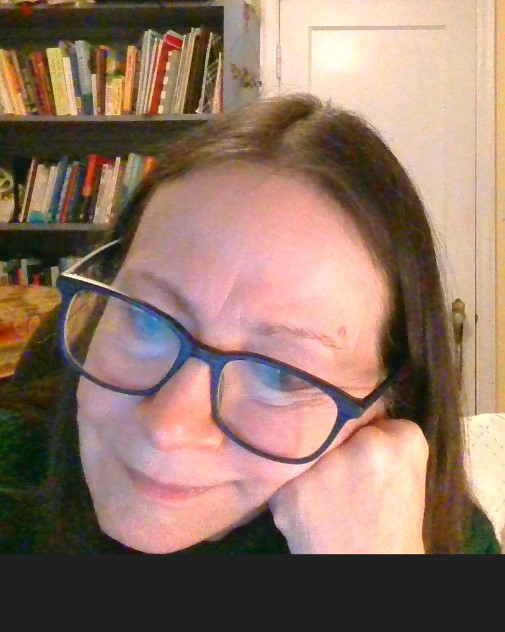Behind the Scenes Part 2
by Jodie Abruscato
This is our second installment of Behind the Scenes, in which The Baltimore Review readers share how the review process works, what they’re looking for in a submission, and how reading for a literary journal affects their lives. They provided a fascinating behind-the-scenes look at The Baltimore Review.
Marcie Roman
What genres do you review?
Fiction and creative nonfiction
Some reviewers have jobs related to literature, and others do not. What is your profession, and how does it affect—or not affect—your life as a writer and reader for a literary journal?

My background is in film and theater production. Early on, I worked in the Art and Locations Departments, so I feel especially drawn to stories that have a vivid sense of place and specificity. In my own work, I'll often imagine aspects of the world that won't appear on the page, but I think (hope!) they create opportunities for the characters to reveal their true natures. I've also worked in script development, so I'm always hoping to read (and aim to write) tight dialogue. I find it helps to "rehearse" scenes by reading them aloud to see how they flow.
What are you looking for when reading submissions?
In addition to the above, I love the musicality of language and the feeling of being carried into a piece by the rhythm and detail. I also enjoy being surprised. Not because of a plot twist, but rather the kind of surprise that comes when you sense the writer made a discovery or deep insight through the writing. I'm also looking for a strong craft/authorial voice and a sense of urgency that gives the writing a pulse. As if this story had to be told. And I want to leave the piece feeling as if the character and I went on an emotional journey together.
Is there anything you’d like The Baltimore Review readers and/or submitters to know about the review process?
The stories that often get elevated are the ones that have had several rounds of revisions before entering the queue. If a submission includes newer writing, setting it aside to give it a few more days to "marinate" can often reveal subtle weaknesses (and typos!) that might otherwise be missed when we've been looking at something too long. Like the Baltimore Review readers, I get excited by the work we receive, and it's such a thrill to discover a new voice.
Barbara Westwood Diehl, founding and managing editor
What genres do you review?

I read submissions in all the genres we publish and make final decisions about the work to be included in each issue. That said, I very much depend on the reviewing skills of the 20-25 readers we have at any one time to work through the thousands of submissions we receive during each submission period (February 1 – May 31 and August 1 – November 30). Most of us have strong opinions, and we spend considerable time reviewing in Submittable and discussing work in Zoom meetings. It’s a never-ending learning process. Highly recommended for writers, by the way—volunteering for journals and seeing the other side of Submittable.
Some reviewers have jobs related to literature, and others do not. What is your profession, and how does it affect—or not affect—your life as a writer and reader for a literary journal?
I’ve been happily retired from administrative jobs for several years now. I have no idea how I managed the BR during all the years I had full-time employment—along with writing short stories and poems—but somehow, I made it work. Here’s a theory: I believe that if we have a passion for our work, we prioritize that work and make it happen. Some of my poems and stories began their lives as words scribbled on sticky notes while cooking or vacuuming, and I confess to reading submissions during quiet times in the office. (Sorry, former employers. It’s way too late to fire me—and I did catch some higher-ups playing Solitaire.)
On a more serious note, managing a literary journal does require some business know-how. There’s the creative side; there is also the budgeting/fundraising/time management/nonprofit organization reporting/social media/participation on panels/working with staff members/other administrative-duties-as-required side. Working in various administrative jobs over the years no doubt helped me with that latter side.
I’ll give credit to all the wonderful faculty members at Towson University (my undergraduate degree) and Johns Hopkins University (my master’s degree) for the creative side—helping me become a better creative writer as well as a more astute reader.
What are you looking for when reading submissions?
Oh, it would be so easy to get started on what I’m not looking for—but I won’t. And what might be a negative for me might not be a big deal for another editor. And I’ve been voted down on some submissions. (Then I blame it on reading fatigue and slink away from my computer in shame.)
Nuts and bolts stuff: I want to see that the submission guidelines have been followed. They’re not lengthy or complicated. Cover notes are not a big deal. Writers should demonstrate professionalism. “Thank you for considering my work.” A brief bio like those accompanying the work on our site. That’s it. Easy. I want to see that the writer has a firm command of the language: spelling, grammar, punctuation, word choice, attention to sentence structure, to sound and rhythm—an ear for the music in language. Vowels and consonants that make me hear music in my head. Clarity. A style that allows me to be immersed in the work without sensing the pulleys and levers and stagehands stumbling over props behind the curtain. A concise and precise use of language. Elegance. I want to sense, immediately, that I’m in good hands.
Content: I want to be surprised. Most of us read widely. We read a lot. Like other BR editors, I want to hear distinct voices. I want nuance and fresh insights. I want to learn. I want to see some new and startling facet of humanity. I want to have a sense of completeness and satisfaction—not that the work has been tied up with a bow, but that the work couldn’t have ended any other way. And maybe that it has a life beyond the page. There are characters that are still very much alive to me; I wonder what they’re up to. I want language and ideas that pop. Like a painting you can recall in more detail than a family member’s face. If a story has magical elements, I want to not stop believing for a minute, and I want to be able to defend its right to be called literary fiction. I want to sense confidence and authority in a writer’s work. And maybe be a little jealous.
I want to feel that a work’s form fits its content. That it had to be a 4,000-word story or flash fiction or micro or prose poem or lineated poem. That the stanza and line breaks and white spaces had to be precisely where they are. The architecture fits the furnishings that fit the inhabitants of that particular literary house.
So—high marks for both craft and content. And, fingers crossed, consensus among the readers.
Is there anything you’d like The Baltimore Review readers and/or submitters to know about the review process?
All the work we publish comes in through Submittable. The work is what counts—not the cover note. Many of us don’t even look at the cover note before reading the work (and never with contest submissions). Every submission is read by at least one reader. We have worked hard to develop criteria for assessing submissions, and we do talk to each other about what we find amazing and what we find concerning. We are writers ourselves, and we try hard to treat writers as we want to be treated. I firmly believe that we should consider ourselves a literary community, not Team Editors and Team Writers. I believe most of us love reading and writing and have good intentions. When we decline work, we try to do so with respect, and writers who receive decline responses (we all do!) shouldn’t let that stop them from scouting out the perfect publications for their work. Sometimes it can be a gentle nudge to revise a bit more. When we accept work, we maintain communication with the writers so they know exactly what we need, the issue in which their work will appear, what and when they’ll be paid, and when the issue is launched so they can share it on social media. All those things we want ourselves as writers.
